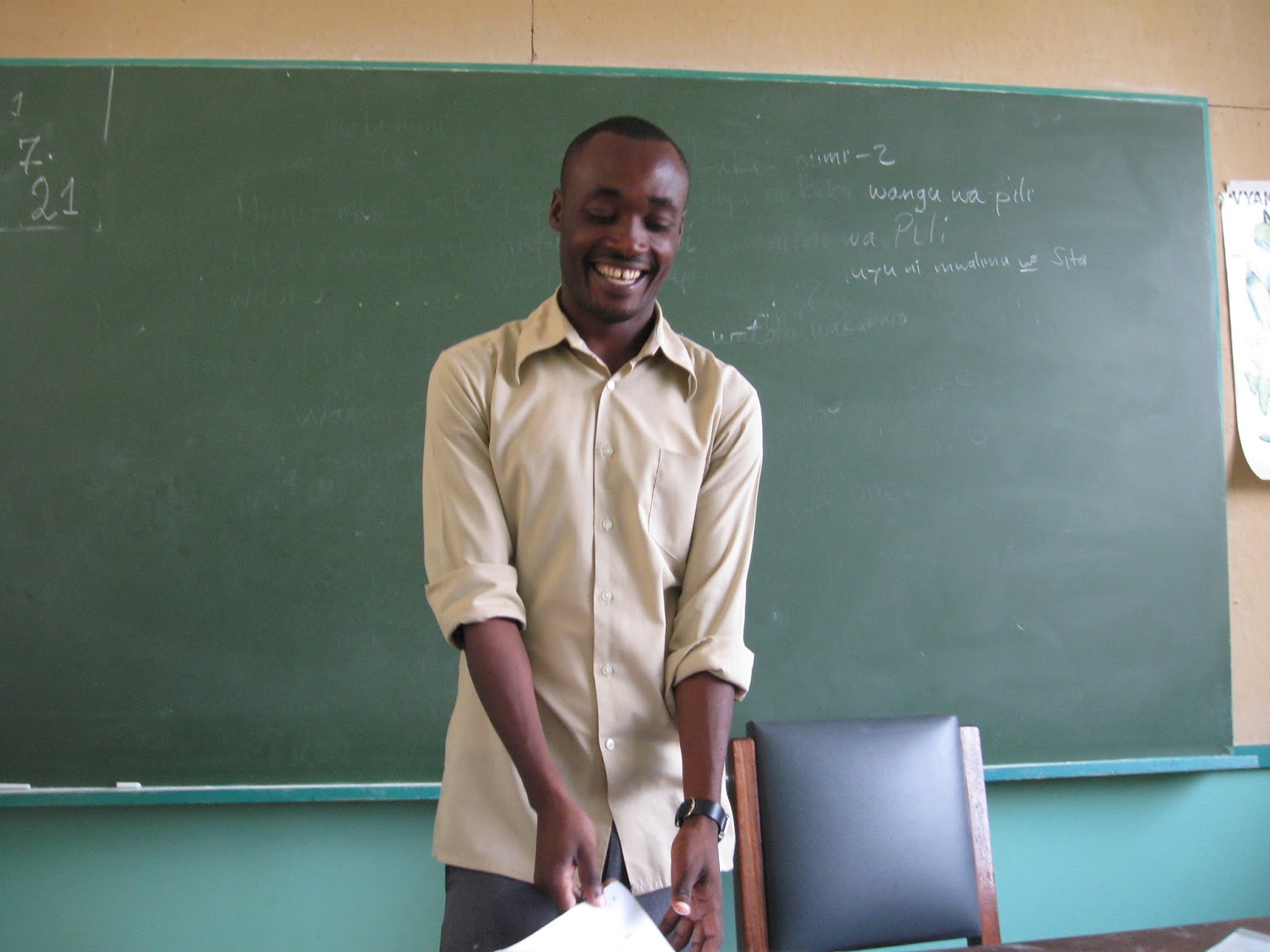In
the beginning of September, the students of Makoko Language School, along with
two of the teachers, visited nearby Lukuba Island on Lake Victoria. We traveled
in a fishing boat with only one “makeshift” seat, which was generously offered
to a few of the women, while everyone else either leaned against the side of the boat
or sat on the support boards running across the inside of the boat. The ride took about three hours roundtrip. The waters were a little rough but everyone seemed to enjoy the ride, except for Sr. Chiara, who got a bit seasick. She was determined to enjoy sight-seeing on the island, though, which she did, along with the rest of us!
Lukuba Island has approximately
3,000 inhabitants. Stepping onto the island was a little like, what I thought it
might have been like, to step into the world of the fisherman during the time of
Jesus. Men repairing their nets for the following evening’s catch, women drying
fish caught during the previous evening’s catch, carrying firewood for cooking,
and preparing meals for the fishermen and their families. The boats used by the
fishermen are made by hand. The women bath the children and wash the family’s
clothing and dishes in the lake. Life here on the island is very similar to life in any other Tanzanian village, except for the number of fisherman.
Another common sight throughout Tanzania is the marabou stork. This bird eats just about anything; glass, cans, paper, shoes and, most important; garbage! The people call it "ndege ya afya"...translated "bird of health". Because the people have no form of waste management, these birds are quite valuable. They are very plentiful but I think I saw more here on Lukuba Island than anywhere else in Tanzania. They are also referred to as the "undertaker bird" because of their appearance. Personally, I think it's one of the ugliest birds I've ever seen! Fr. Jean-Francois' wanted his picture taken with the bird so his 4 year old niece could get a better perspective of how big the bird is. She seemed to be fascinated with it! The marabou stork can reach a height of 5 feet and weigh as much as 20 lbs. Its wingspan is the widest of any living bird at 12 ft.!
Finally, we visited a neighboring private island which is considered part of Lukuba. It's designed for tourists only, with beautiful cabins and clean sand. Lounge chairs and swings could be found along the beach. The island resort is run by an Australian man. The price for one day & night is approximately $100, which includes being picked up from, and returned to the main land (on a nicer boat than we road in). The price also includes meals. Not a bad price for a private island but definitely not within the budget of any of the local people, or any of the missionaries! Quite a contrast from the island we had just left!
Finally, we visited a neighboring private island which is considered part of Lukuba. It's designed for tourists only, with beautiful cabins and clean sand. Lounge chairs and swings could be found along the beach. The island resort is run by an Australian man. The price for one day & night is approximately $100, which includes being picked up from, and returned to the main land (on a nicer boat than we road in). The price also includes meals. Not a bad price for a private island but definitely not within the budget of any of the local people, or any of the missionaries! Quite a contrast from the island we had just left!








.JPG)










































